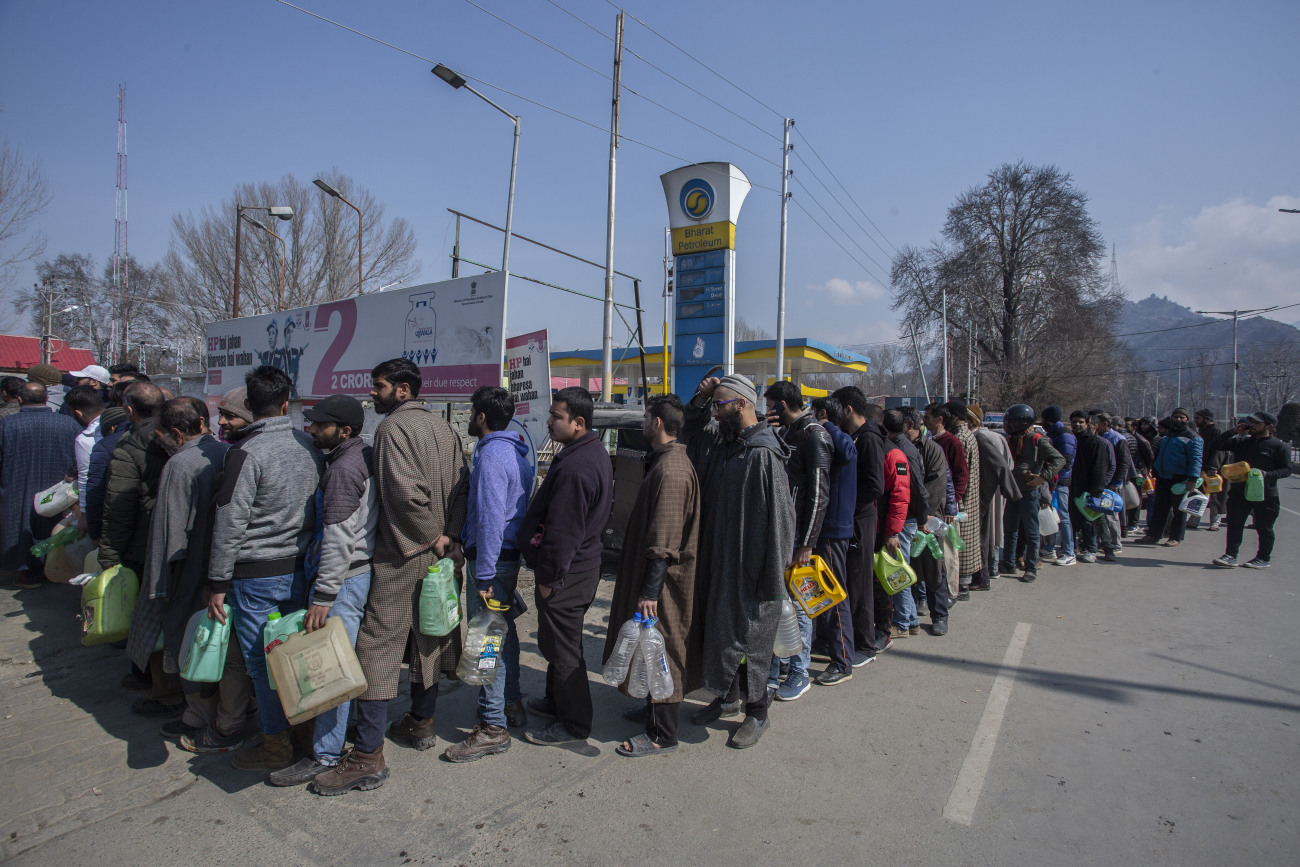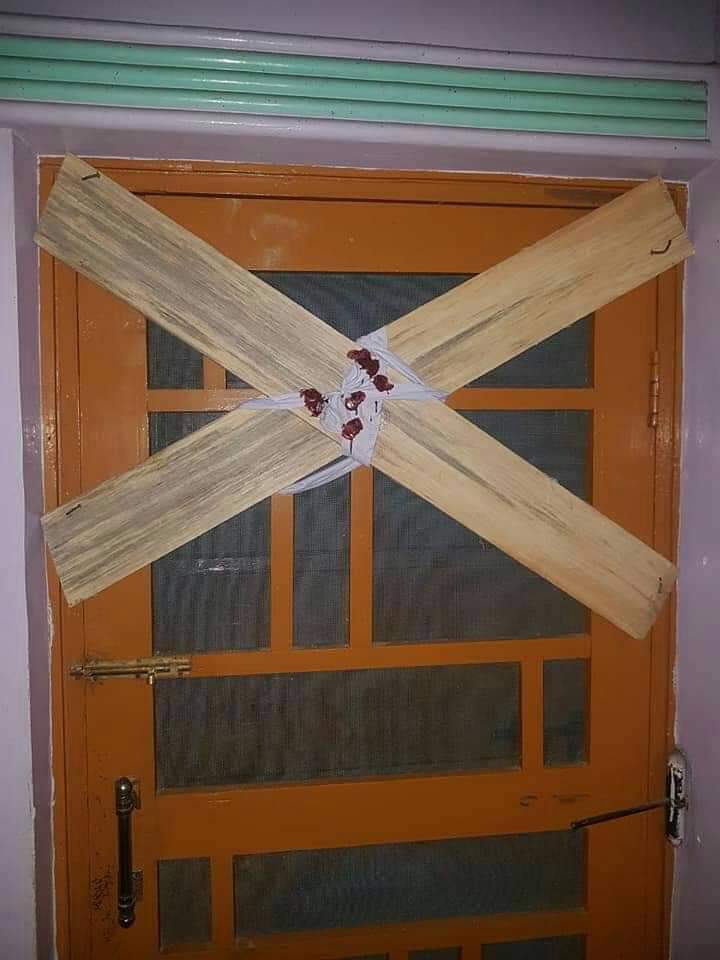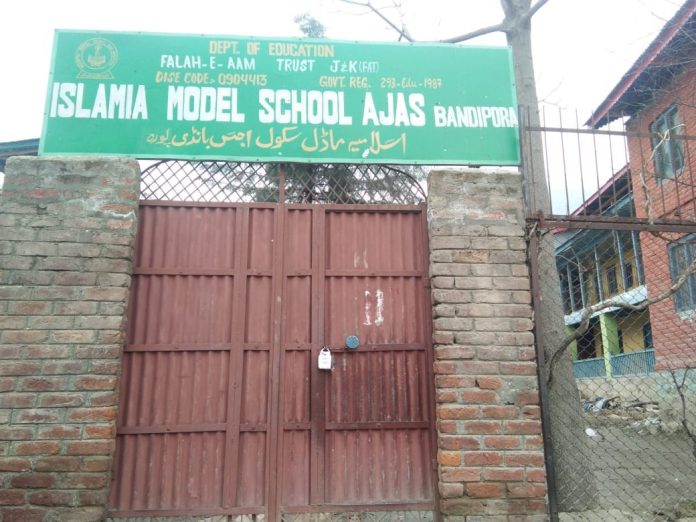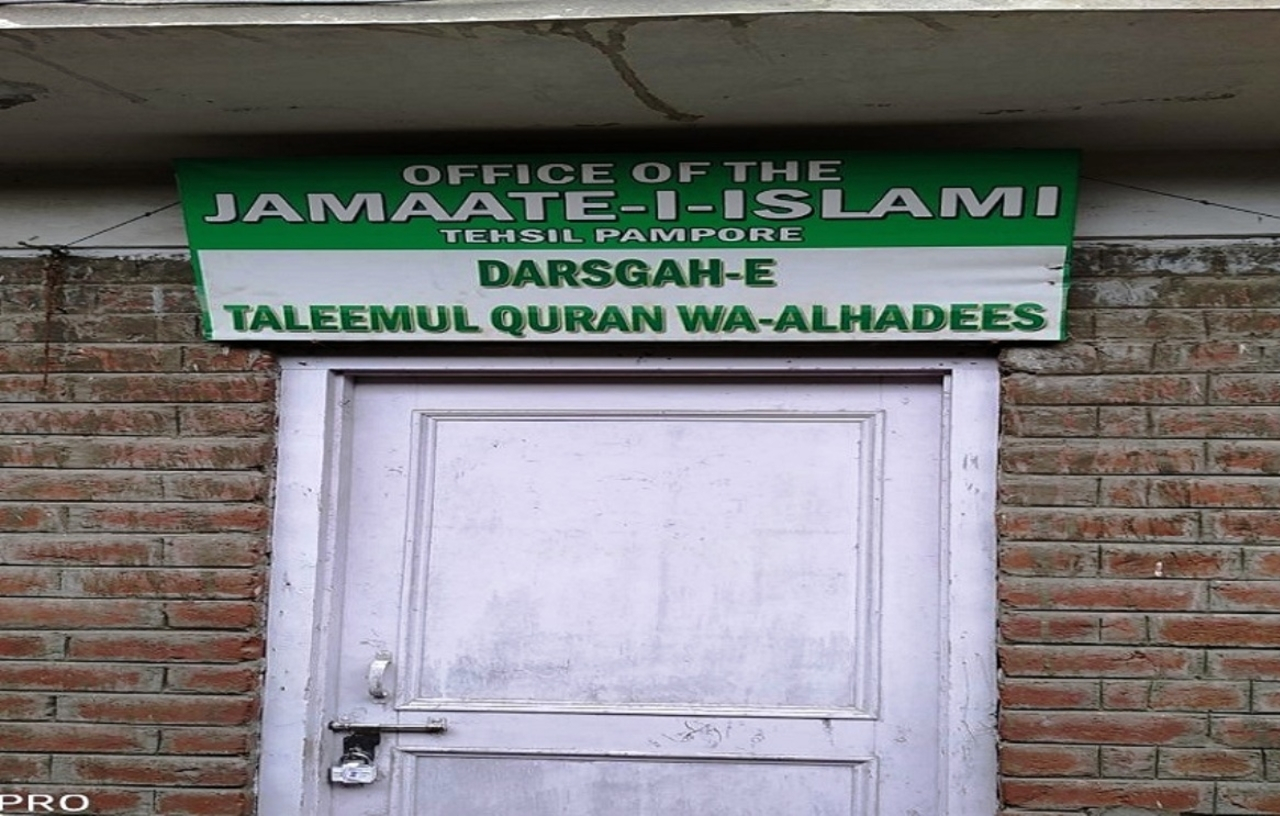Although a fifth Indo-Pak war has been avoided or at least thwarted for now, war is far from over for the Kashmiris in the valley. Even after back channel negotiations between the two warring nuclear powers rivals led to de-escalation of war tensions and the dramatic release of IAF pilot Abhinandan Varthaman by Pakistan, violence and human casualties have been continuing unabated in the Kashmir Valley. Today’s grenade attack on civilians in Jammu at a public bus stand which caught media attention is only a continuation of the past few weeks regular loss of lives in Kashmir in the border villages across the LOC from heavy cross-firing going on between the two armies, and from violent encounters that have largely gone under-reported. From encounters to blockades to banning of political organisations and mass arrests of dissenters, Kashmir is under severe crackdown by a wounded nation and its hurt ego. A GroundXero report.
Since the capture of an IAF pilot by Pakistani armed forces, international economic-political pressures and back channel diplomacy have put a lid on the boiling Indo-Pak war-like situation. Simultaneously, the focus of the Indian state apparatus has shifted back from the external enemy in Pakistan to the ‘internal’ ones in the Kashmir valley. A political organisation like the Jamaat-e-Islami has been banned, raids are being conducted on separatist leaders, and massive crackdowns on people at large have been launched. There have been reports of encounters in several parts of the state over the past few days. This is of course in addition to the regular harassment of general civilians in public spaces, particularly on highways. Tension in the valley became particularly palpable and intense after the overnight deployment of tens of thousands of troops in the valley,as rumours and fears about potential scrapping of special legal protections such as Article 35(A) started gripping the region. On the night of February 22, government forces launched overnight raids to arrest Jamaat-e-Islami members, including it top leadership, causing widespread panic. “It gives me immense pleasure to share the news that my 64-year-old father M Amin Wani has been picked by SOG (Police) and army in a nocturnal visit to our house,” wrote MudasirWani, a Tral resident, at 3 am on Feb 23rd. “Tonight my heart is filled with tonnes of love for army and India,” he wrote sarcastically. According to some reports, more than 200 Jamaat members have been picked up over the past week or so.
In addition, Kashmir’s sole lifeline – the Srinagar-Jammu highway – has been closed for days together by the Government post-Pulwama, causing acute scarcity of essentials like food, fuel etc. For days, fuel stations ran dry and even now, the situation has changed little. The Government has rationed fuel, and people are having to wait outside petrol stations for hours for a mere three litres of petrol. Yet that too was mostly unavailable. Yesterday a strike called by the Jammu and Kashmir Socio Economic Coordination Committee (JKSECC) led to complete shutdown in the entire Kashmir valley, Pirpanchal region and the Chenab valley, supported by most of the local trading bodies.

Fuel crisis in Kashmir. Courtesy: FreeSpeechCollective/Abid Bhat
The Government has also withdrawn advertisements for two Kashmiri newspapers – Greater Kashmir and Kashmir Reader, furthering the ongoing attacks on press freedom in the valley. Kashmir Reader was earlier banned for 3 months by the BJP-PDP Chief Minister Mehbooba Mufti in 2016, in the aftermath of mass protests that followed the killing of Burhan Wani. Both the newspapers have been vocally critical of Government policies in the state. Soon after the February 14 attack, Kashmiri media reported on communal attacks against Kashmiri students, traders and others outside the Valley. In addition to videos that surfaced, students who returned to the Valley also narrated the harrowing events. At least seven Kashmiris were booked with charges including sedition for “objectionable” comments on social media. Several Kashmiris lost their jobs for comments that were critical of the Government and the armed occupation. Governor SP Malik had dubbed such media reportage as “exaggerated”, claiming that they triggered “unnecessary excessive reactions in the Kashmir Valley”.
The Banning of Jamaat-e-Islami – Jammu and Kashmir
Last Thursday, following a series of crackdowns on separatist leaders, the Modi government declared JeI Kashmir as an ‘unlawful association’ under the Unlawful Activities (Prevention) Act claiming that the group is involved in ‘anti-national activities’, and imposed a ban of 5 years. Kashimiri leaders including former PDP Chief Minister Mehbooba Mufti and IAS officer turned politician Shah Faesal opposed the ban.
Hundreds of the organisation’s members were arrested overnight, including its chief Abdul Hamid Fayaz and Advocate Zahid Ali (spokesperson). Many members have reportedly gone underground post the mass arrests. Even the spokesperson of the group has been arrested, which is apparently the reason why the organisation has still not been able to come up with a statement on the ban. The GoI notification reportedly claims that JeI was “in close touch” with militant outfits and is expected to “escalate secessionist movement” in the state. According to some reports, more than 450 people have been arrested so far.
Why is GoI so uncomfortable with Jamaat e Islami? Radicalised Hindu groups representing fringe elements are given carte blanche to spread misinformation & vitiate the atmosphere. But an org that has worked tirelessly for Kashmiris is banned. Is being anti BJP anti national now?
— Mehbooba Mufti (@MehboobaMufti) March 1, 2019
JeI J&K was formed in 1945 as a chapter of the Jamaat-e-Islami Hind. However, in 1952 the Jamaat-i-Islami Hind decided to separate its Kashmir branch over disputes on the issue of Indian occupation of the state. JeI Hind considers J&K as an integral part of the Indian Union, JeI J&K does not. JeI J&K is a politico-religious organisation in the state who also have a significant social base – though their relevance has waned significantly in the Valley, in recent years. They not only run educational institutions across Kashmir but also have a well-devised charitable trust to help orphans, widows and the poor financially. Banning the JeI J&K would mean risking the careers of hundreds of thousands of students who know nothing about JeI but simply study in these schools. Even though Khurshid Ahmad Ganai, Advisor to Governor, J&K, said that there will be no “random ban” on Jamaat-e-Islami run schools, there have news reports suggesting that the Government is imposing ban and closure on schools run by Falah-e-Aam Trust. Alumni of the school are running a petition asking the Government to allow the schools to run, given the large number of students who enroll in the FAT schools. After Sheikh Abdullah in 1971 banned any political party to run the schools; “these schools were detached from the Jamaat-e-Islami organisation so as to remain apolitical, charitable and social welfare organization under FAT,” claim the alumni in a statement. Presently, Falah-E-Aam Trust reportedly runs over 350 schools across the state of Jammu and Kashmir, with enrolment of over 100,000 students and 10,000 staff members.

House of Jamaat leader sealed, in Srinagar. Courtesy: TwoCircles/Mohammad Junaid
Politically, the JeI J&K represents a section of Kashmiris who consider Kashmir as an occupied territory and want separation. The JeI J&K has participated in elections several times in the past – including local Panchayat elections in 1969, General Elections of 1971, and State Assembly elections of 1972. They also raised the question of self-determination in the State Assembly. Indira Gandhi had banned the organisation during Emergency, after she signed a pact with National Conference leader Sheikh Abdullah, who agreed to drop the Kashmiri demand for self-determination. The ban was lifted in 1977 and Jamaat participated in that year’s elections. After the 1987 state elections, widely believed to have been rigged, the Jamaat abandoned electoral politics. As militancy spread in 1989, it threw its weight behind the separatist movement. Through most of the 1990s, it was seen as the political wing of the pro-Pakistan Hizbul Mujahideen. It was banned for five years in 1990, when security forces launched a severe crackdown on militancy. The ban was not reimposed at the end of the five-year period.
The JeI(J&K) and the PDP
Lately, JeI J&K has been tacitly supporting the PDP in elections, while maintaining their official stand of “neither do we support elections, nor do we oppose them”. They were seen as the key factor behind the coming to power of PDP’s Mufti Mohammad Sayeed in the 2002 Assembly elections, from South Kashmir. JeI have never given a call for boycott of Indian elections, unlike other parties banned under the UAPA such as the CPI (Maoist). Over time, as the mass character of the struggle for self-determination grew in Kashmir post the 1990s, JeI came to be seen as rather ‘soft’ on the question of self-determination and lost significant political influence in the valley. In 2015, right after Narendra Modi’s coming to power, the organisation distanced itself from the Hurriyat, and GulamMohd Bhat, appointed the organisation’s chief for a fourth term, reiterated it had “no connection with militancy”.
Still JeI gets banned right before the elections, amidst growing crisis over Kashmir. A few days back BJP’s point person for Kashmir, Ram Madhav, in an interview at the India Today Enclave, highlighted disagreements over “taking action” on JeI J&K as one of the reasons for BJP breaking the State Government last year. JeI J&K has always been, in theory, a supporter of ‘separation’ since its formation. Still, BJP went into alliance with the PDP, whose connections with the JeI J&K are public knowledge. Further, Modi Government waited for four and a half years, before deciding to ban the organisation right before the 2019 elections. It is not just that they were not banned much earlier in the tenure of the Modi Government, but in fact even while regular NIA raids have been carried out on the Kashmiri separatists for over a year now, very few Jamaat leaders’ residences had been even raided, untilthe recent ban. Questions are being raised by Kashmiris as towhy the NIA did not raid Jamaat’s leaders’ residences and offices if they had credible verifiable information about JeI J&K’s role in ‘extremism’.

A School run by Jamaat seazed in Bandipora district. Photo: TwoCircles/Umar Parra
JeI J&K is not as consequential in Kashmiri politics today as it was in the ‘90s. According to some Kashmiri political observers that GX spoke to, after this ban however, “they are again growing in relevance”. “If [Narendra] Modi was a diplomat, he would have owned up JeI instead of banning them,” said one of them. The ban on JeI J&K, mainly a political stunt meant for the mainland Indian audience, has led to several speculations in the valley as to how to interpret banning of such an outfit that is not even very influential. “Now that you can’t act against Pakistan, you are killing the ants. And of course you cannot talk about the elephant in the room. So you have to show that you are doing something,” said a Kashmiri student in Mumbai, who GX spoke to.
The PDP has condemned the ban on JeI J&K. The People’s Democratic was formed by Mufti Muhammad Sayeed in 1999, when he was the Union Home Minister. Till 2009, the PDP was in the UPA, and was always seen in the state as ‘Congress’ B-Team’, created to retain control over Kashmiri politics from New Delhi. Unlike Sheikh Abdullah’s National Conference which is more ‘home-grown’ in Kashmir and therefore ultimately politically unpredictable for the Indian state, the PDP was much more under control and could be used to keep NC in check.
With the forging of an alliance with BJP in 2014, PDP and their leader, ex-CM Mehbooba Mufti, lost the general Kashmiri sympathies at large. After finally coming out of the coalition last year, BJP even tried to poach PDP lawmakers, to establish singular majority in the Assembly. Many Kashmiris are of the opinion that the key purpose of BJP’s getting into an alliance with the PDP was to eat away at PDP’s cadres over time, through money and other means. “They quit trying and came out of the Government finally when they realised that they can’t,” said a Kashmiri observer. When Ram Madhav was asked in the India Today interview about allegations that BJP was trying to buy PDP MLAs, he denied the allegations, but made sure to follow it up with a suggestive smile to which the anchor said “Even you are smiling when you say that”.
PDP has lost a lot of ground through all this, and has become practically powerless in the valley. This political vacuum, many are saying, is going to swing towards NC-Congress in the upcoming elections.
“This [ban] could in fact be a veiled tactic of the Indian state to prop up JeI J&K as a politically relevant organisation, while controlling it from behind. Otherwise why would they want to add to the popularity or significance of an organisation they hate, and that too an organisation that everyone in Kashmir knows is politically inconsequential today? Even the Indian state knows that right now banning an organisation means adding to their popularity in the Valley. Any Kashmiri who gets attacked by Indian administration in any form, is an automatic hero in the Kashmir of today. Such are the levels of mass anger against the Indian administration there,” said one Kashmiri researcher.
These are of course speculations as of now, but they still talk of the ground situation in Kashmir today.

